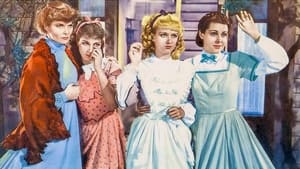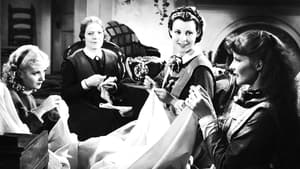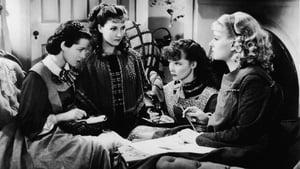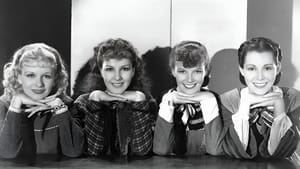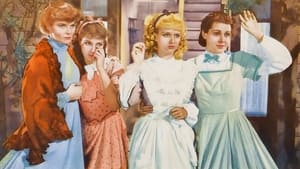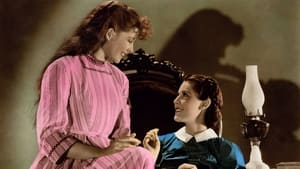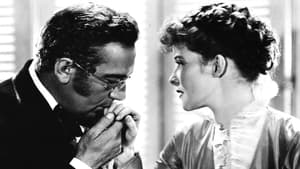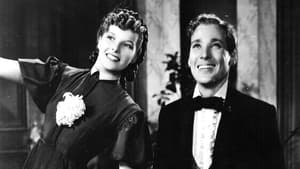Video Sources 0 Views
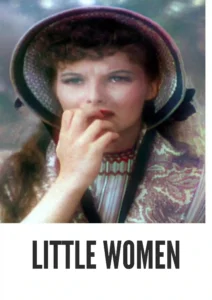
Synopsis
Timeless Sisters: Little Women (1933) in Breathtaking Color

Step into the cherished world of Louisa May Alcott’s Little Women, a heartwarming period drama from 1933, now beautifully colorized for a viewing experience that brings a fresh perspective to this timeless story. Starring Katharine Hepburn and Joan Bennett, this film, directed by George Cukor, beautifully captures the lives, loves, and challenges of the March sisters during the Civil War era. Perfect for lovers of classic literature and historical dramas, this HD download offers a visually stunning rendition of a beloved classic.
Little Women Storyline: The Enduring Tale of the March Sisters
Little Women follows the lives of the four March sisters – Jo, Meg, Amy, and Beth – as they navigate the challenges of growing up in Concord, Massachusetts, during the American Civil War. With their father away serving as a chaplain in the war, the sisters, guided by their wise and loving mother Marmee, face financial struggles, societal expectations, and personal heartaches.Jo, the spirited and independent aspiring writer, struggles to find her place in a world that expects women to conform. Meg dreams of a comfortable life and romantic love. Amy, the artistic one, seeks refinement and social success. Beth, the gentle and kind-hearted sister, provides a moral compass for the family. As they face life’s trials and triumphs, the March sisters learn the importance of family, friendship, and staying true to oneself. Little Women is a poignant and uplifting story that continues to resonate with audiences of all ages.
Movie Cast
The film features an iconic cast of actors who bring the March sisters to life:
- Katharine Hepburn as Jo March
- Joan Bennett as Amy March
- Paul Lukas as Professor Bhaer
- Edna May Oliver as Aunt March
- Jean Parker as Beth March
- Frances Dee as Meg March
Movie Genre
Little Women falls into the genre of a heartwarming period drama. The film explores themes of family, love, ambition, and personal growth.
Historical Context: The Adaptation of a Literary Classic
Released in 1933, Little Women is an adaptation of Louisa May Alcott’s beloved novel, which has captured the hearts of readers for generations. This adaptation, directed by George Cukor, is considered one of the most faithful and celebrated versions of the story, showcasing the talents of its all-star cast and the enduring appeal of Alcott’s characters and themes.
Colorization Details
This colorized version of Little Women has been meticulously restored using modern digital techniques, enhancing the visual appeal while preserving the film’s original charm and emotional depth. The colorization process involved carefully analyzing the grayscale tones of the original black and white footage and assigning appropriate colors to each scene. This painstaking process brings new life to the characters and settings, making the story even more engaging for modern audiences. While some may debate the merits of colorizing classic films, it introduces these films to a broader audience, ensuring their legacy for future generations.
Technical Details
- Director: George Cukor
- Screenplay: Sarah Y. Mason, Victor Heerman
- Based on: the novel by Louisa May Alcott
- Cinematography: Henry Gerrard
- Edited by: Jack Kitchin
- Production Company: RKO Radio Pictures
- Distributed by: RKO Radio Pictures
- Runtime: 115 minutes
Technical Specifications
- Download Format: MP4
- Resolution: HD (1080p)
- Compatibility: Compatible with most devices, including smartphones, tablets, computers, and smart TVs.
Reviews and Critical Reception
Little Women (1933) is widely regarded as one of the best adaptations of Louisa May Alcott’s classic novel, praised for its faithful portrayal of the story’s beloved characters and themes. With Katharine Hepburn’s memorable performance as Jo March and George Cukor’s sensitive direction, this film remains a timeless classic that continues to resonate with audiences of all ages.
FAQs
- Q: What is Little Women about?
- A: Little Women tells the story of the four March sisters as they navigate the challenges of growing up during the American Civil War.
- Q: Is Little Women (1933) a faithful adaptation of the novel?
- A: Yes, this adaptation is considered one of the most faithful and celebrated versions of Louisa May Alcott’s classic novel.
- Q: Is this version of Little Women colorized?
- A: Yes, this version has been professionally colorized to enhance the viewing experience.
- Q: What makes Little Women (1933) a classic film?
- A: Little Women (1933) is a classic film due to its timeless story, memorable characters, and its exploration of universal themes.
- Q: What is the download format?
- A: The download format is MP4, which is compatible with most devices.
- Q: What resolution is the download?
- A: The resolution is HD (1080p), providing a high-quality viewing experience.
Download Now in HD!
Watch Little Women Today!
